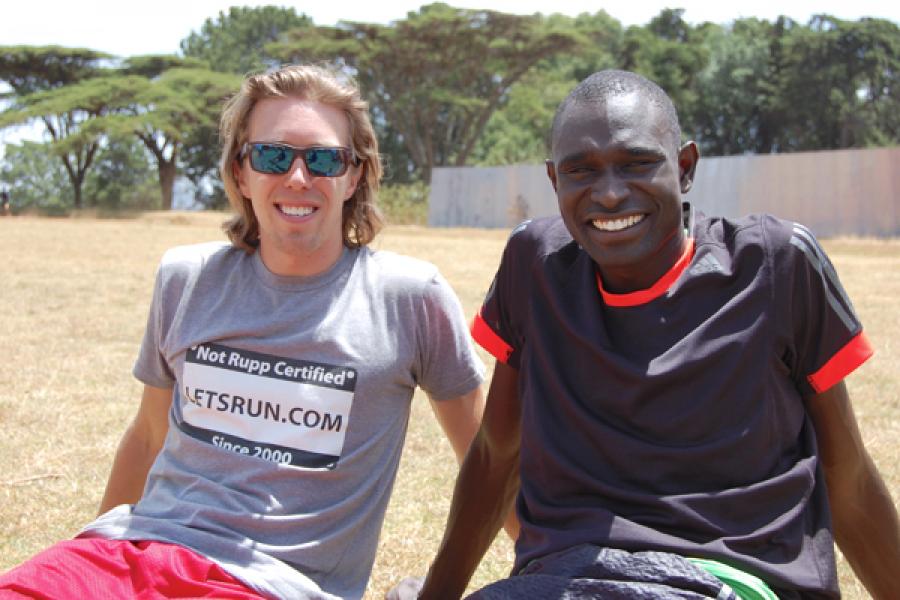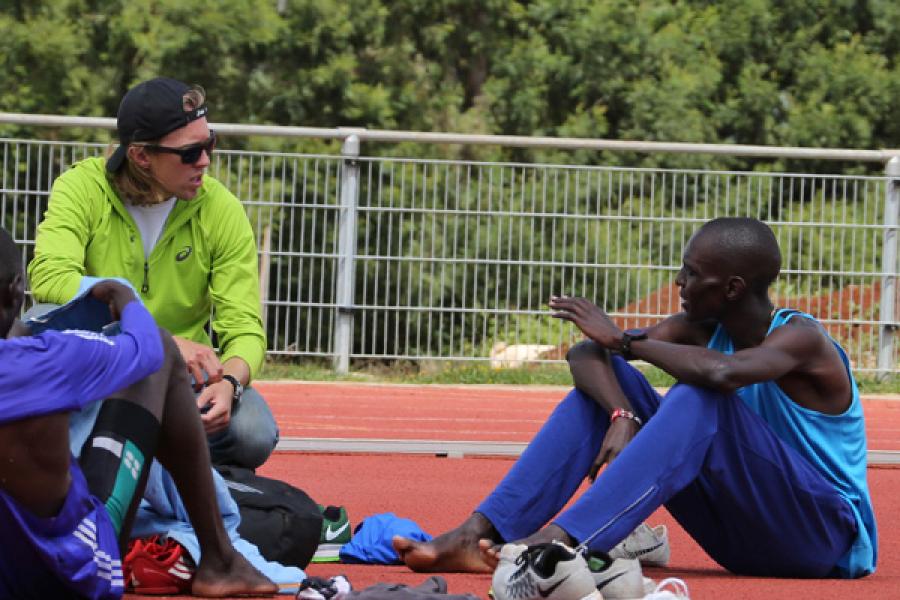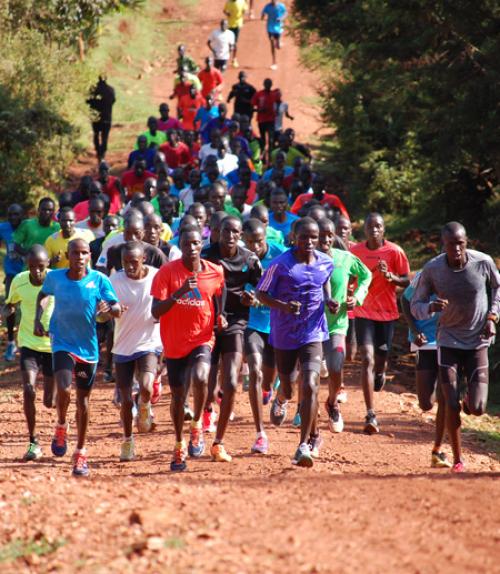The Olympics inspire tremendous excitement all over the world, but for Andy Arnold ’13, they're personal. He's gotten to know some of the world’s best athletes and watched two of them march in the 2016 Summer Olympics opening ceremony: David Rudisha, Olympic champion, world champion and world record holder in the 800 meters, and Asbel Kiprop, who won gold in the 1500 meter race in the 2008 Olympics.
Arnold spent six months in Kenya thanks to a National Geographic Society Young Explorers Grant, which allows him to continue his research on elite runners. “I’m friends with a few runners," said Arnold. ”They are incredible, humble and generous people who have welcomed me into their homes and lives as if I were family.”
As a runner his whole life, Arnold seeks to understand how a group of people from a small corner of East Africa could rise to become the most dominant athletes in the world.
“These men and women have to overcome incredible obstacles just to make it to international racing, and yet for the past 50 years they have consistently found a way to the top of Olympic podiums,” Arnold said.
As an anthropology major and member of the men’s track team, Arnold was able to combine his passions into a unique research project.“As an undergraduate in anthropology, I became fascinated in understanding how this phenomenon was formed and what forces perpetuate it,” he said.
Arnold explained that instead of focusing his research on why Kenyan athletes are so fast, he is interested in “understanding the forces that form a space for this phenomenon to manifest,” he said, “and then to understand the psychology, training and faith required for a Kenyan athlete to become exceptional.”
In Kenya, Arnold explained that there are thousands of athletes that wake up every day and train. Many of the kids who don’t get into university decide to be athletes. They live with relatives or friends and every morning they get up and go for a run.
“They train in this ritual and get better, and hope to be seen by managers and elite athletes, who can open doors for them into the sport,” he said.
After they finish training for the morning, the athletes rest, taking recovery very seriously. Usually this means sitting by the roadside, talking with other runners and drinking chai tea, Arnold explained. In the afternoon, they may do another short workout.
While in Kenya, Arnold gets to train with the athletes sometimes, but he also observes some of the workouts that the athletes do. He takes notes and interviews many of the runners, immersing himself in the culture of this running phenomenon.
“I want to find out what motivates these athletes. I like to ask about their background,” he said. “Every elite [Kenyan] athlete has had a tough life, but they overcome it and become one of the world’s greatest.”
“I want to know their story because it holds the clues as to why these men and women are not just amazing athletes, but inspirations,” he said.
To find out more about Arnold’s research, visit http://www.theenculturatedchampion.org/bio/.
A version of this article also appeared in the Cornell Chronicle.
Anna Carmichael ’18 is a communications assistant for the College of Arts & Sciences.






